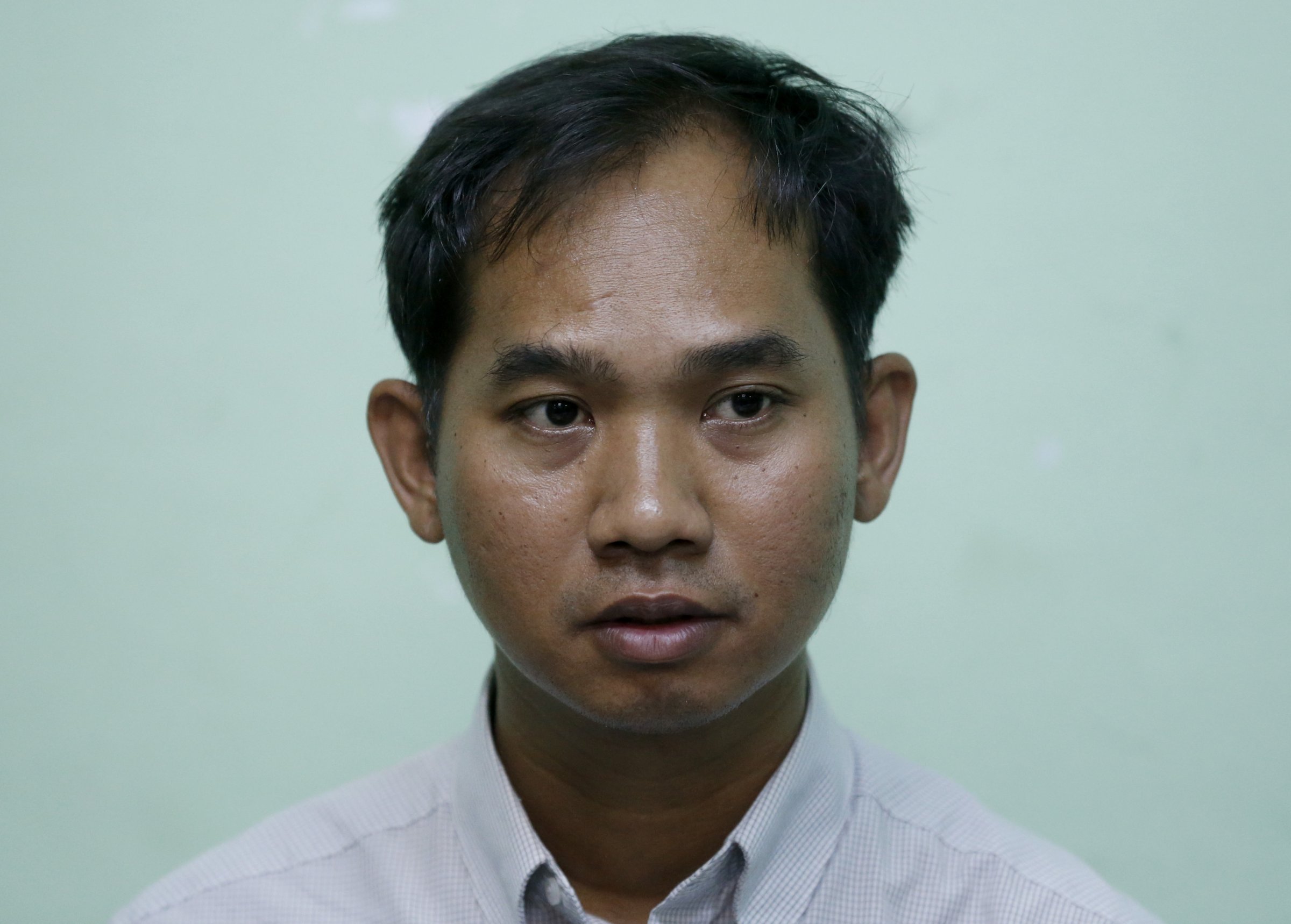
Burmese authorities arrested an award-winning investigative journalist at Yangon International Airport Sunday night as he was preparing to fly to Bangkok, claiming that he might try to evade a criminal defamation charge leveled against him earlier this year.
Local broadcaster DVB reports that Swe Win, chief editor and correspondent for Myanmar Now, will be transferred to a jail in Mandalay where he is expected to face trial for allegedly defaming Wirathu, a monk known for giving incendiary anti-Muslim sermons in the majority Buddhist country.
The charge was brought against Swe Win by a supporter of a Buddhist nationalist group known as Ma Ba Tha under the controversial section 66(D) of the country’s Telecommunications Law in March of this year after he reportedly shared a post on Facebook suggesting Wirathu had violated the monastic code of conduct by making statements commending the Jan. 28 assassination of a well-known Muslim lawyer.
The complainant later urged authorities to withdraw the charge against Swe Win, according to Frontier Myanmar, a weekly magazine. DVB reports that religious authorities had “effectively absolved” the reporter on the grounds that the case lacked legal merit. His was among a number of high-profile criminal defamation claims brought against journalists over the past year.
Read More: The Arrest of Three Journalists Shows a Disturbing Lack of Press Freedom in Democratic Myanmar
Swe Win is also the fourth journalist to be detained in the country in just over one month, alarming press freedom and rights watchdogs in Southeast Asia. In late June, Myanmar’s military detained seven people — three journalists and four men who were traveling with them — in the country’s war-torn Shan State under a draconian Unlawful Association Law, claiming they had connections with armed rebels.
In September of last year, Swe Win was awarded the President’s Certificate of Honor for his groundbreaking investigation into years-long abuse of domestic workers at a tailor shop in the country’s biggest city and former capital, Yangon. If convicted of the charge against him, he could face up to three years in prison.
More Must-Reads from TIME
- Donald Trump Is TIME's 2024 Person of the Year
- Why We Chose Trump as Person of the Year
- Is Intermittent Fasting Good or Bad for You?
- The 100 Must-Read Books of 2024
- The 20 Best Christmas TV Episodes
- Column: If Optimism Feels Ridiculous Now, Try Hope
- The Future of Climate Action Is Trade Policy
- Merle Bombardieri Is Helping People Make the Baby Decision
Write to Joseph Hincks at joseph.hincks@time.com